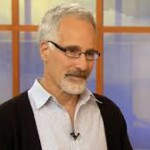Hi again. It’s me this time. No guests. I want to tell you about the debate I just had with a high priest of the Disease Church. Not the bishop, Nora Volkow. But her second in command, George Koob.
Those of us who oppose the disease label have been trying to organize a real debate for a long time. Nora Volkow has consistently ignored these requests or else replied No through her staff. But Koob made an 
 excellent second choice. Judging by his picture and digital presence, I expected a slightly stodgy, soft-spoken academic/scientist type who saw addiction as a disease.
excellent second choice. Judging by his picture and digital presence, I expected a slightly stodgy, soft-spoken academic/scientist type who saw addiction as a disease.
In fact Dr. Koob is the second author of the paper first-authored by Volkow in the January issue of the New England Journal of Medicine, the paper that made a lot of us anti-disease people more irate than usual. Here’s the title: Neurobiologic Advances from the Brain Disease Model of Addiction. And here’s a passage from the first paragraph:
In the past two decades, research has increasingly supported the view that addiction is a disease of the brain. Although the brain disease model of addiction has yielded effective preventive measures, treatment interventions, and public health policies to address substance-use disorders, the underlying concept of substance abuse as a brain disease continues to be questioned…
I used this quote to launch a counterattack that was published last week in the Guardian. I was pleased to see my little fusillade appear on page 1 of the US edition last Tuesday. And it’s snagged over 600 comments and 2,700 shares in the first week. So a lot of people seemed to agree with my criticisms of the disease model (specifically the claim that the disease label led to an “effective” response to addiction and reduced stigma). But, if you happen to browse the comments, you’ll see that many others thought I was out to lunch.
I actually wondered whether Koob had already read my article. Because he seemed hopping mad from the first words of the debate.
Here’s how it went.
I was sitting in a flashy looking studio in Arnhem. Yes, even in my town we have studios with lots of computers and screens and expensive looking microphones. So I was sitting there in a sound-proof room in front of a state-of-the-art mic, and George Koob was in Washington. The debate was set up by CBC (Canadian Broadcasting Corp — Canada’s national radio) and will be broadcast a few weeks from now. I’ll let you know.
I was nervous. More nervous than I’ve been in any kind of talk or interview for a long time. My voice came out raspy at first. Yet I’d done my homework. I’d reread lots of stuff on changes to the dopamine system, Berridge’s review of his incentive sensitization model, findings on the desensitization of the striatum and the resultant loss of connectivity with the prefrontal cortex. I’d also scanned articles showing that these brain changes are common to drug addiction, porn addiction, obesity, “internet addiction,” and even compulsive shopping — so I had a few arguments ready.
I’d also read a few Koob papers (which I forgot I’d already read thoroughly until I found my yellow highlighting throughout) and felt completely caught up on his theory of the “dark side” of addiction, viz withdrawal, viz the rebound invoked by the “antireward” system. I was ready to talk brain science, because I had no doubt (and I still have no doubt) that George Koob is a top neuroscientist, highly respected and rightfully so. Not to mention the director of the National Institute on Alcohol Abuse and Alcoholism.
But within minutes of the word Go, I realized that I’d done all that cramming for nothing. This debate wasn’t going to be about the neuroscience of addiction. It wasn’t going to be smart, sophisticated, strategic, or fun. It was going to be a slug fest.
The moderator/host (a seasoned radio/TV person in Toronto) started things off by asking Koob: Why do you say addiction is a disease?
He replied something like: What else could it be? And when she asked for a bit more substance: Because it changes the brain. It’s as simple as that. That’s what he said, almost verbatim. And I thought: that’s the most vacuous argument he could possibly make. Everybody knows that the brain is always changing, it changes whenever we learn something, it changes massively throughout development, and there’s this thing called neuroplasticity which is basically the brain’s job description. But that’s what he said: addiction is a disease because it changes the brain. So I had to retort with…well, some version of what I just said.
It didn’t get any better. He sounded angry throughout. He was belligerent at times. He talked about how four people he was very close to had died from alcoholism, because they could not stop drinking. Absolutely could not stop. And he specifically accused me (and us anti-disease folk) of trivializing addiction by not recognizing that it’s a disease. I told him I’d lost a friend to addiction too, but I wasn’t pleased with myself for stooping to such arguments. He even said that I wanted addicts to be stigmatized and that’s why I opposed the disease label. Which was exactly the opposite of what I’d just said: that I felt the disease label merely entrenched the stigma of addiction, and there were much better ways to overcome stigma, like connection, compassion…all the things Johann Hari writes about….and understanding what it really is without giving it a simplistic label.
I’d better stop. I don’t remember everything, and maybe my memories are blurred by the adrenalin I was surfing through most of the debate….which lasted about 45 minutes.
But here’s the point I want to make. I’m pretty sure I “won” the debate because I said smarter things and backed them up better than my opponent. And I’m pretty sure I came off smelling sweeter because my tone wasn’t as antagonistic as his.
BUT IT DOESN’T MATTER.
The problem is that we weren’t talking. We were just fighting. We weren’t listening to each other. We weren’t getting to know each other’s views any better. We certainly weren’t arriving at some kind of middle ground that might benefit from both our perspectives.
And that is so sad!

Leave a Reply